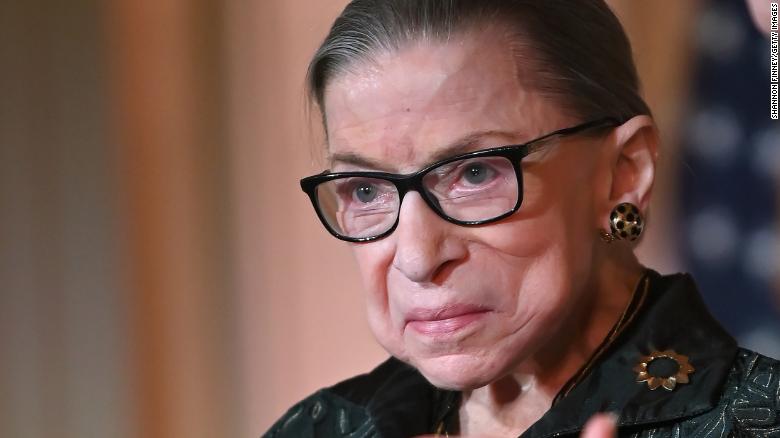Supreme Court Nominee Impacts
As of Friday, there is a vacancy in the Supreme Court. Associate Justice Ruth Bader Ginsburg died due to complications of metastatic breast cancer at 87 years old. “Our Nation has lost a jurist of historic stature,” Chief Justice John Roberts said. “We at the Supreme Court have lost a cherished colleague. Today we mourn, but with confidence, that future generations will remember Ruth Bader Ginsburg as we knew her – a tireless and resolute champion of justice.” Now, President Trump and his allies in the Senate are attempting to replace the Justice with just forty days left until the election. This process normally takes months, but we are living in anything but normal times.
To replace a Supreme Court Justice, the President will nominate someone to fill the opening on the Court, and the Senate will vote to confirm them with a simple majority passing. Justices can hold office as long as they wish up until death or impeachment. President Trump said he will announce his pick on Saturday at 5 pm. The Senate and the Judiciary Committee are controlled by the Republican Party. Democrats need four Senators to break with the GOP to block Trump’s nominee before the election and so far, they have two: Lisa Murkowski, a Senator from Alaska, and Susan Collins, a Senator from Maine.
If President Trump’s nominee is confirmed, several progressive rulings are in jeopardy, most notably the ACA (Affordable Care Act, also called Obamacare) and Roe v. Wade, which legalized abortion. LGBTQ+ rights are also in the air. The Court has issued a string of landmark decisions in the last few years, beginning with gay marriage being legalized in 2015. Those decisions could be overturned with a new Justice, and religious rights could be expanded in favor of LGBTQ+ rights. Trump has said that he will be selecting a woman as his nominee and Amy Coney Barrett has emerged as a favorite so far. A judge in the seventh circuit judge in the US Court of Appeals, she has come under criticism by Democrats concerning her writings about her faith and the law. Chuck Schumer, the Senate minority leader, said Sunday night that she “stands for all the things Ruth Bader Ginsburg was against and so many things that the vast majority of American people are against.”
Another candidate is Barbara Lagoa, whom President Trump appointed to the eleventh US Court of Appeals in 2019. She was the first Hispanic and the first Cuban American woman on Florida’s Supreme Court, which is a battleground state this November. Allison Jones Rushing, fourth Court of Appeals since her confirmation in 2019, is also in the running. She has been criticized on account of her ties to Alliance Defending Freedom, a conservative Christian nonprofit organization that advocates for religious freedom in the United States. The President has made it clear that he will not be nominating anyone who won’t vote to overturn Roe v. Wade.
Part of the controversy over filling the vacancy is that it’s an election year. With forty days left until election day, Mitch McConnell has promised to bring President Trump’s nominee to a vote in the Senate, even though four years ago he blocked President Obama’s nominee because it was an election year. Democrats have little chance of stopping or delaying the vote, as Republicans control the Senate and the Judiciary Committee, but it hasn’t stopped the debates. If anything, it’s added more fuel to the fire. This vacancy is the second-closest to an election year ever, the first being Chief Justice Roger B. Taney’s death twenty-seven days before Abraham Lincoln’s reelection. Lincoln delayed his nomination until after he won.
Democrats argue that the Senate shouldn’t even consider the nomination due to Mitch McConnell’s insistence in 2016 that President Obama could not nominate Merrick Garland because it was eight months before the next presidential election. Presidential candidate Joe Biden has said that the next president should be the one to choose the next Justice. President Trump argued that in the case he has to challenge the results of the election, there should be a ninth justice to avoid a tie.
Associate Justice Ruth Bader Ginsburg would tell her granddaughter in the final days before her death that her “most fervent wish is that I will not be replaced until a new president is installed.”

